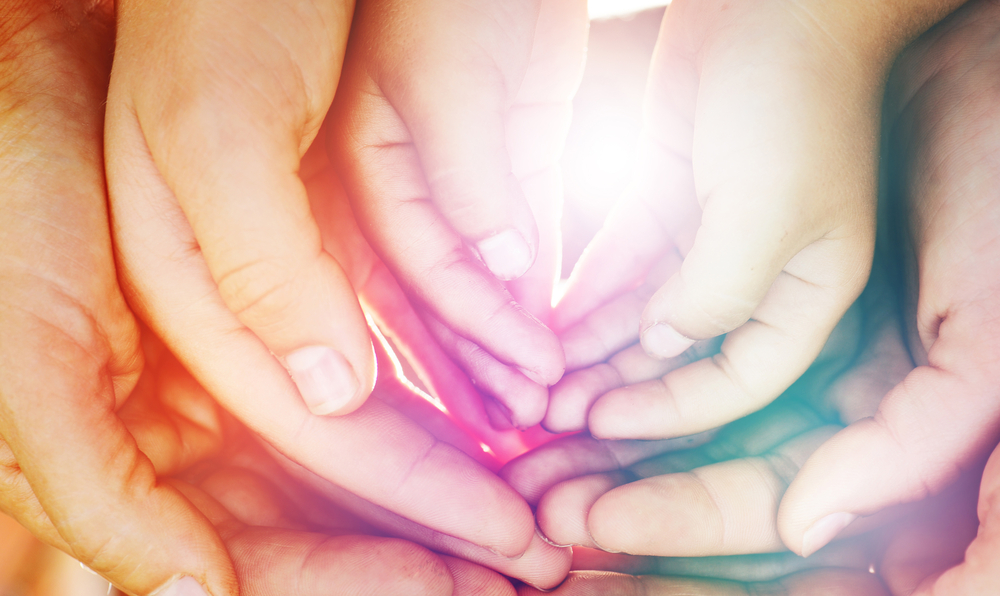


Ideally we would feel calm and peaceful the majority of the time. However sometimes, despite our best effort, external situations can take us away from our peace. There is a direct correlation between how conscious we are to how peaceful we feel. In our journey from unconscious (where we are unaware of our thoughts and emotions that drive our behaviours), to conscious, (where we are aware of our inner thoughts and emotions, allowing us to make choices around them) it is our reactions that are the key.
If we react to someone else’s behaviours, it’s usually a sign that there is some unresolved emotion in us created by our conditioning that has come to the surface for healing.
A reaction is actually a survival mechanism that is triggered in certain situations by the way our brain perceives the issue. It takes place in our amygdala, a nut-shaped structure that sits at the base of our skull, located in the middle of our brain. It assesses the environment for signs of danger through the senses: sight, hearing, taste, smell, and touch.

The amygdala is part of the limbic system, associated with emotions such as fear, rage, anger, pleasure, and fight or flight. Through emotional association to past events, the amygdala scans the


environment for situations that create stress. Where it perceives danger, it will react in the way of fight-or-flight. For example, you could react to conflict by withdrawing (flight) and be unable to find the right words to say. Alternatively, you may attack aggressively (fight) and say things you don’t mean.
This survival system is lightning-fast, providing an immediate subconscious reaction to an event. You know when a reaction has taken place when you feel some sort of emotional charge and generally don’t feel very good. Words, such as triggered, hooked in, and buttons being pressed, are often used to describe the event. Usually you feel strong physiological changes within your body, including:
- Rapid heart rate
- Increased breathing
- Increased metabolism, which could make you feel shaky

- A tight feeling in your stomach, due to your digestive system slowing down, and
- A fuzzy head, due to reduced function of your frontal brain and reasoning centres.
These changes give your body more energy that allows you to run from perceived danger. An overactive survival response may have helped you in childhood, but rarely does it help in adulthood. As an adult, you can often be left feeling out of control, confused, and frustrated.

A child’s reasoning centres at the front of the brain are not fully developed until late adolescence (Conference centres on adolescent brain development, 2008). Therefore, particularly in early childhood, information is processed in a very emotional way. If a child grows up in an aggressive household, the amygdala may give the child signals to withdraw from a potentially dangerous situation (flight).


This allows the child to draw less attention to him or herselfand perhaps remain physically safe. The problem occurs when that person is in a similar situation as an adult. Any similarly aggressive situation, large or small, can trigger a flight reaction, as this pathway was programmed in the brain in the past and is now automatic.
The adult will find him or herself reacting and withdrawing without wanting to. The reaction is often not proportional to the situation and leaves the adult feeling confused and ineffective at controlling the outcome.
Part of the survival response is due to diminished frontal brain activity, which makes it harder to think clearly. Therefore, when the amygdala is overactive, we may feel that we overreact to a stimulus rather than provide a measured response.
When you react to a situation rather than respond, it is a good opportunity to develop greater awareness of your behaviour. It is common for people to blame others for their reactions, yet another person cannot be responsible, because a feeling is something that occurs inside of your body. By taking full responsibility for your reactions, you can begin to step into your empowered self.
We are able to work through that reaction and take one more step on the journey towards wholeness when we take responsibility for how we feel. Nobody can make us have a feeling.
A reaction can unlock the door to greater awareness if you are able to take responsibility for your own feelings and not fall into the trap of blame. If you blame someone else for your feelings, you will not learn and grow from your experiences. This will result in a self-perpetuating cycle of reaction to your partner: a cycle that is often painful and creates emotional unrest.
Other words for a reaction are triggered, buttons pressed, or hooked in. It is often our romantic partner that, once we are passed the liverance phase of a relationship, knows exactly how to press those buttons! This can actually be a sign that you have found your soul mate as you work through your conditioning together on your journey back to wholeness.
It is important to develop the skills and tools to handle the reaction—to make your way over the mountain, through the rapids to the bliss that awaits you on the other side.
I am in no way talking about an abusive relationship. Abuse of any sort, emotional or physical, is not OK. If you or your children are in danger of being harmed in any way, that is a sign to REMOVE yourself from the relationship altogether until the other person is able to take responsibility for their behaviours and transform the abusive behaviours to ones of respect and love.

In order to process your reactions with your partner, you need to be in an environment where you feel safe and secure enough to be vulnerable and authentic; being real around your emotions is integral to this process. It takes courage but is worth it.



